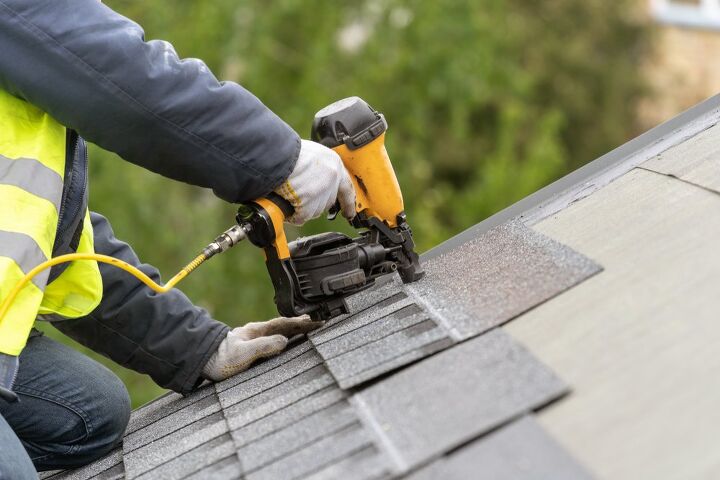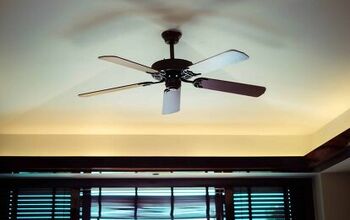Are Roof Warranties Transferable?

Buying a house can be stressful; there’s so much to look into, inspect, and evaluate! One aspect of purchasing a home that you may not have considered is the roof warranty. What happens to the warranty when ownership of the house changes hands?
In most cases, roof warranties are transferable, but there are many exceptions, so reading the fine print is essential. There are multiple types of warranties with varying lengths and rules, including manufacturer’s warranties, workmanship warranties, and full system warranties. Some roof warranties can only be transferred once, and some require manufacturer notification and administrative fees.
Do You Need Roofing, Siding, or Gutter Installers?
Get free, zero-commitment quotes from pro contractors near you.

Can A Roof Warranty Be Transferred?
Some roof warranties can be transferred, and others cannot. The first step to see if a warranty will transfer is to ensure that it’s registered. For warranties to be valid, the homeowner must register and pay for them. If this hasn’t happened, then the warranty can’t be transferred because it doesn’t actually exist.
Check The Fine Print
Next, you’ll need to look at the warranty’s fine print. Some manufacturers limit the number of times the warranty can be transferred. You may come across a warranty that can only be transferred once or one that can be transferred multiple times.
Another factor to look for in the fine print is whether it’s necessary to notify the manufacturer of the transfer. Some manufacturers require notification within a certain timeframe, and they may also have an administrative fee to handle the paperwork.
The General Rule
In general, though, roofing warranties transfer to new homeowners the majority of the time. However, there are many exceptions and caveats. Therefore, buyers should always ask to look at the warranty registration and details during a home sale.
Are Shingle Warranties Transferable?
Shingle warranties typically fall under manufacturer’s warranties for roofs. For the most part, they are transferable. Still, homebuyers should always look at the fine print to make sure there are no exceptions or limitations that apply.
It’s important to note that manufacturer’s warranties can vary depending on shingle type. For example, multi-layer architectural shingles typically have a lifetime warranty against defects. However, the “lifetime” usually refers to the home’s original owner.
Meanwhile, single-layer or strip shingles most often have a 20- to 30-year limited warranty against defects. The majority of asphalt shingles have a transferable warranty, but with the caveat that they can only be transferred once.
What Happens To The Roof Warranty When The House Is Sold?
What happens to the roof warranty depends on the specific terms and clauses within the warranty. Some warranties are transferable, others are not, and still others can only be transferred a certain number of times.
In most cases, roof warranties can be transferred to the new homeowner. Regardless, homebuyers should always look at the fine print. If mentioned in the warranty, they must also notify the manufacturer of the transfer and potentially pay an administrative fee.
Are Roof Warranties Worth It?
Opinions are mixed on whether or not roof warranties are considered to be worth the cost.
The Argument For Roof Warranties
Many roofing professionals state that roof warranties are absolutely worth the extra cost. This is especially true if the roof was particularly expensive.
If the roof has issues, then the manufacturer (and sometimes the contractor) is legally bound to help protect your investment.
The Argument Against Roof Warranties
On the other hand, some professionals state that a warranty doesn’t necessarily guarantee the quality of your roof. It is true that a roof warranty is not the same as an insurance policy. Some argue that the best protection is hiring the right contractor and keeping up with regular roof maintenance.
How Long Is A Roof Warranty On A New Home?
The average length of a roof warranty for a new roof can vary quite a bit. There are multiple types of warranties, all with different lengths.
Manufacturer’s Warranty
Manufacturer’s warranties, also referred to as roof shingle warranties, are the most common type of roof warranty. They typically range from 20 to 50 years and cover defects in the roofing materials. In most cases, the warranty does not apply if the homeowners don’t regularly maintain the roof.
Roof Workmanship Warranty
This type of warranty means that the contractor who did the installation will be responsible for material and labor issues. Roof workmanship warranties vary in length from two to ten years. They protect against defects in the installation process, but are typically invalid if the original contractor isn’t used for repairs.
Full System Warranty
Full system warranties generally cover materials and manufactured accessory roofing materials like flashings and metalwork. They last anywhere from 10 to 30 years and cover labor to complete repairs and the full cost of leaks. However, full system warranties don’t always cover installation errors.
Roofing Labor Warranty
Roofing labor warranties cover the labor needed to address roof issues, but they don’t cover the cost of materials. Roof installers usually offer this type of warranty.
Roofing Material Only Warranty
This warranty type covers manufacturing defects and unanticipated deterioration of the roof membrane. It doesn’t cover accessories and metal work.
Do You Need Roofing, Siding, or Gutter Installers?
Get free, zero-commitment quotes from pro contractors near you.

Related Questions
How much do roof warranties cost?
The average cost of a roof warranty ranges from $45 to $180 per year.
What is a normal roof warranty?
What is considered a “normal” roof warranty can vary greatly. There are many different types of roof warranties available that cover various issues. Most roof warranties cover defects in materials and workmanship.
How do roof warranties work?
The three most common roof warranties are standard manufacturer’s warranties, contractor workmanship warranties, and extended manufacturer warranties.
Standard manufacturer’s warranties only cover the products you purchase, such as shingles. If shingles must be replaced, the warranty covers their cost, but you’ll be responsible for the labor costs.
Contractor workmanship warranties usually cover necessary materials and the cost of labor. Many also cover related damages to your home’s interior, including personal effects and furnishings.
Extended manufacturer warranties are the most comprehensive (and most expensive). They often include coverage for all of the roof system’s components and defective materials. They also usually cover workmanship concerning installation errors.

With a lifelong passion for writing plus strong enthusiasm for home improvement and DIY projects, joining the team at Upgraded Home was an easy choice. Jessica Allen likes to share helpful information with current and aspiring homeowners. Aside from writing, Jessica loves doing yoga, playing the piano, and dabbling in graphic design.
More by Jessica Allen













![10 Best Electric Lawn Mowers - [2022 Reviews & Top Rated Models]](https://cdn-fastly.upgradedhome.com/media/2023/07/31/9070486/10-best-electric-lawn-mowers-2022-reviews-top-rated-models.jpg?size=350x220)
![10 Best Cordless Leaf Blowers – [2022 Reviews & Ultimate Guide]](https://cdn-fastly.upgradedhome.com/media/2023/07/31/9070789/10-best-cordless-leaf-blowers-2022-reviews-ultimate-guide.jpg?size=350x220)












